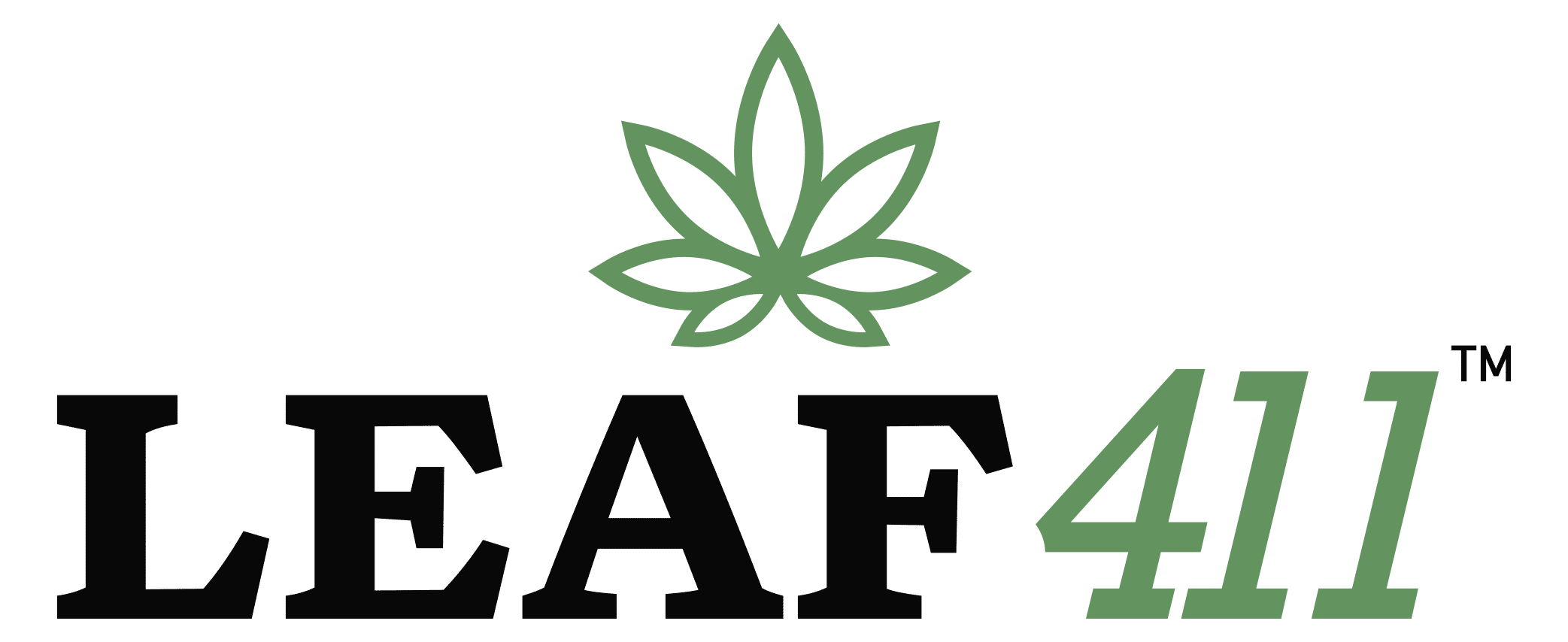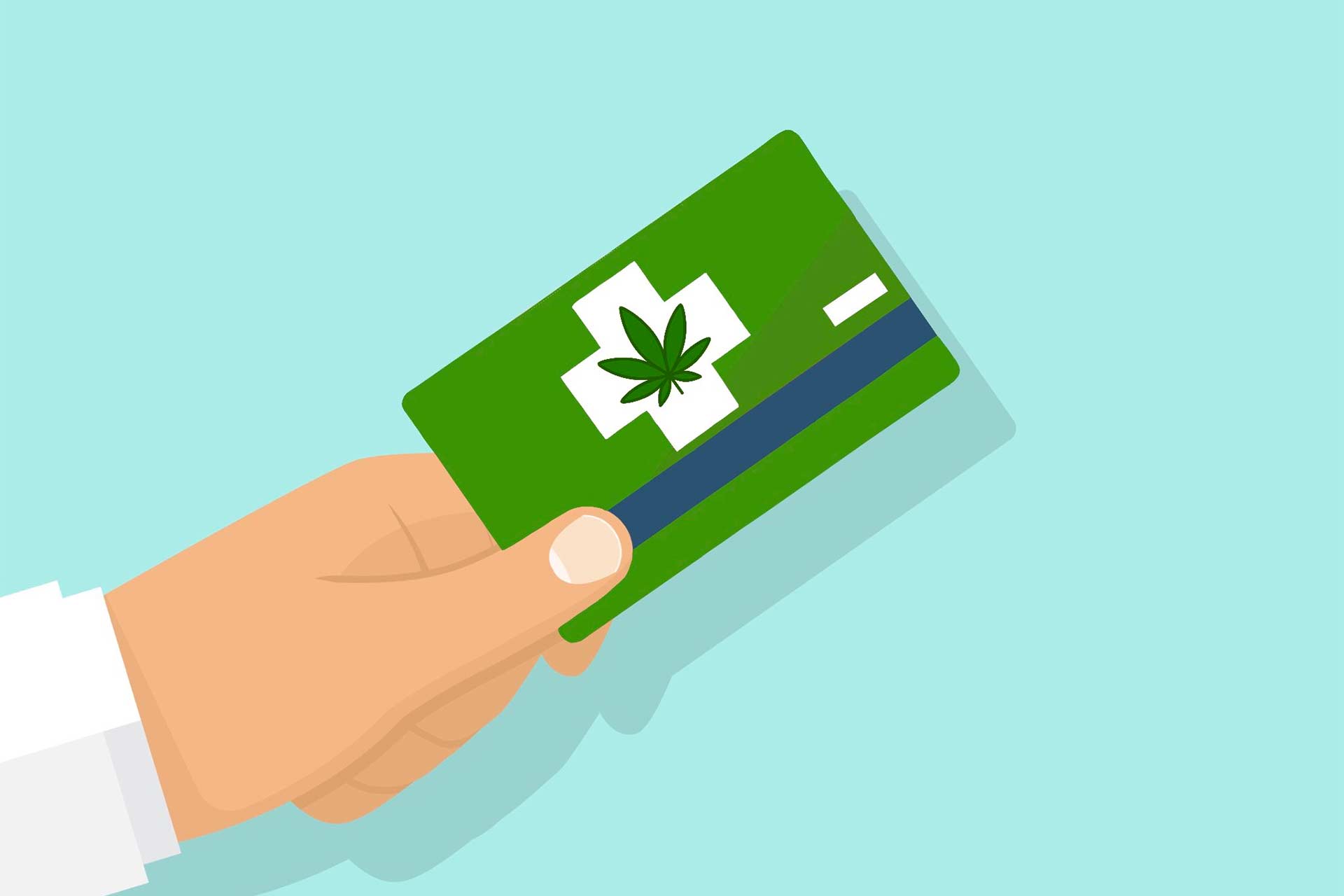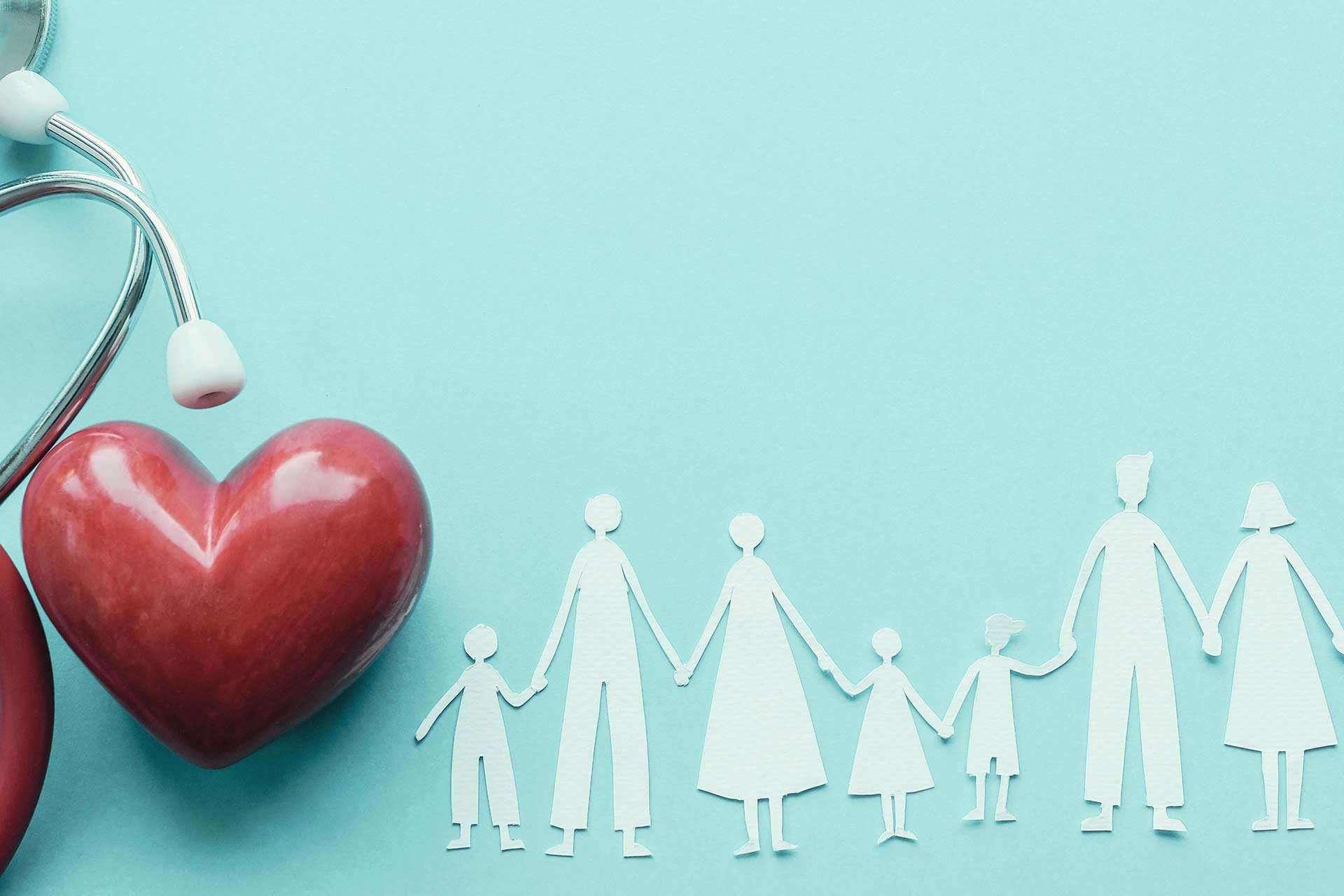Do You Need a Medical Marijuana Card?
By Katherine Golden, RN – Founder and CEO of Leaf411
“Should I get a medical marijuana card?” We hear that question a lot on the Leaf411 cannabis nurse hotline, as callers seek out the best way to access legal cannabis.
We can help you sort out your options based on your needs as well as what options exist where you live. Check out our Leaf library for your state’s current cannabis laws.
Is Legal Recreational Marijuana an Option for You? Then You Might Not Need a Med Card
Many of our callers are just starting out using cannabis and only require small doses of THC. Lower dose products are more easily found in recreational dispensaries. You don’t need a medical marijuana card (often called an “MMJ card” or “med card”) to visit adult use or recreational (rec) dispensaries. However, you’ll need a state-issued ID as proof that you are 21 or older.
Also, it’s worth noting that cannabidiol (CBD hemp) containing less than 0.3% THC is federally legal. CBD hemp (may also CBDa, CBN, and CBG) products are available over-the-counter and online in nearly every state, no med card required! Check out a list of Leaf411 nurse vetted Hemp members here.
If you’re just starting out with cannabis and live in a fully legal state that has both rec and medical marijuana, we suggest reaching out to a cannabis-trained clinician first for advice on the best routes, ratios and products. Our Leaf411 hotline is the perfect first-step resource!
In many cases, these products will be available to you without a med card, saving you both the time and cost of applying for a card.
David Gordon, MD, a Leaf411 advisory board member and integrative medicine practitioner notes that, “In Colorado, a lot of the products that we might use for medicinal purposes are only available on the rec side. Companies aren’t making as many products for the medical side because it’s not as profitable.”
While it can be challenging to find products made specifically for the medical market, there are brands that do a great job creating products specifically for medical use. One of our supporting members, Wana Brands, is a great example.

Understanding Med Card Qualifications
Before we get into cases when a med card makes sense, it’s important to talk about the qualifications for getting a medical marijuana card. Covered conditions vary from state to state. For example, in Colorado, the state list includes specific disabling or debilitating conditions. Oklahoma, on the other hand, is one of the least restrictive states. Their law leaves it up to the doctor to determine if cannabis is a good treatment option.
Check this link for an updated list of different states’ qualifying medical conditions.
When a Med Card Makes Sense
Some states only legalized medical marijuana, not recreational use. If you live in one of these states, then your only option for accessing legal cannabis is by qualifying for a med card.
Med cards are also the only option for people under the age of 21 to access legal cannabis.
It’s important to know what a med card gets you, as well as what protections it does not provide (you might be surprised!).
What a Med Card Provides in Some States
- Access to products at lower cost than recreational dispensaries
- Lower sales taxes when buying at a medical dispensary
- Higher doses and higher limits on how much you can buy in a day
- The ability to legally grow your own cannabis for personal use in some (but not all) states
What the Med Card Doesn’t Do
It’s important to remember that all marijuana—medical and recreational—remains federally illegal, even when legalized at the state level.
- A med card doesn’t give you the right to smoke in your rental if prohibited by lease
- A med card doesn’t prevent your employer from firing you for positive drug test results.
- Holding a med card may disqualify you from certain jobs or impact your career or educational options, though many states are also enacting legislation on this front.
Other Considerations Before Getting a Med Card
Will a med card restrict your right to own firearms? The answer is tricky.
Cannabis is federally illegal, and the feds oversee gun licensing and ownership. By the letter of the law, anyone using a federally illegal drug, or addicted to an illegal drug, is prohibited from owning or buying firearms.
If you’re buying a gun, you typically must complete a background check—specifically, the Firearms Transaction Record, or Form 4473. This form includes a question specific to marijuana use, and reinforces the federal prohibition, asking:
Are you an unlawful user of, or addicted to, marijuana or any depressant, stimulant, narcotic drug, or any other controlled substance?
Warning: The use or possession of marijuana remains unlawful under Federal law regardless of whether it has been legalized or decriminalized for medicinal or recreational purposes in the state where you reside.
In other words, if you answer truthfully (and you should—lying on Form 4473 is considered a felony offense!), then your background check may fail.
At Leaf411, we’re nurses, not lawyers. We recommend that you consult with an attorney if you have concerns about whether your cannabis use will impact your right to own or buy firearms.
A number of law firms now specialize in marijuana law. In fact, our board member David Wunderlich, Esq., Senior Attorney at McAllister Garfield, P.C., played a key role in improving Colorado’s laws around medical marijuana, and regularly speaks on cannabis and hemp issues.
Medical marijuana use may also impact state-administered public assistance benefits such as Temporary Assistance to Needy Families (TANF) in states that drug test welfare recipients. Interestingly, in Missouri, having a med card can actually protect your benefits. However, the rules vary from state to state and are frequently being updated. We strongly suggest you ask your social service agency whether holding a med card would impact your public assistance benefits.
How to Apply for a Med Card
You’ve weighed the pros and cons, as well as options available in your area, and have decided to get a med card. Where do you start? Search online using “med card” and your state to find state-specific information for obtaining a medical card in your area.
- Check your eligibility, making sure you have a qualifying medical condition.
- Confirm any special requirements, such as if you’re applying as the legal representative of another adult or someone under 18.
- Note the process for obtaining a card, including required fees. In some cases, discounts may be available for specific patient groups. For example, Oklahoma provides a discount to 100% disabled veterans.
- Find a doctor who provides medical marijuana evaluations. Your regular primary care provider may provide this service, though many primary care doctors may be unfamiliar with the med card evaluation process.
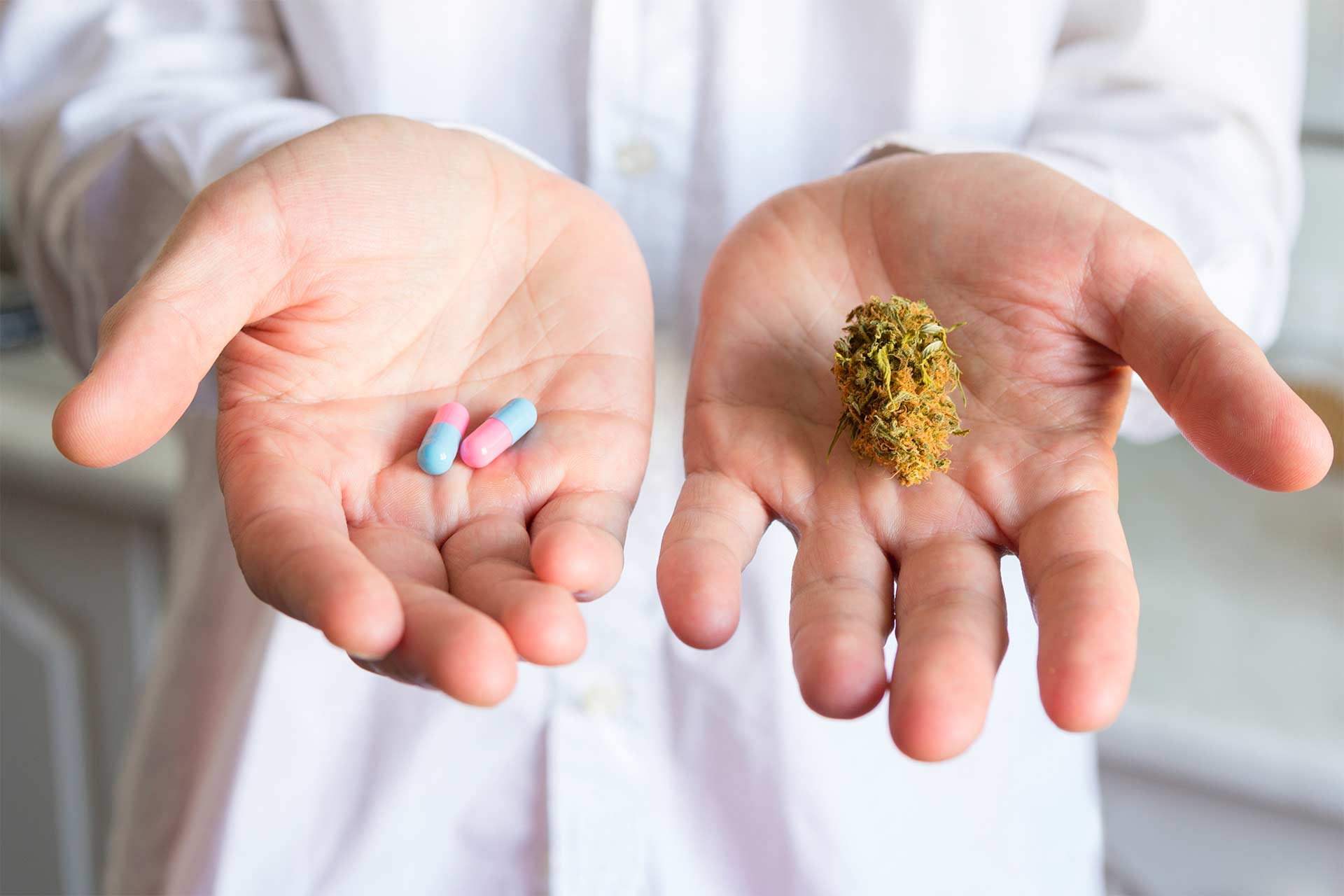
How a Med Card and a Prescription Are Different
You may think that the med card evaluation process will be a lot like getting a prescription from your primary care doctor. In fact, that’s rarely the case! The doctor’s certification simply tells the state that you qualify for a med card based on their assessment of your health history and conditions. It doesn’t tell you which products to start with or how much to take.
When you schedule a med card consultation, it’s worth asking whether the provider provides guidance on using cannabis to treat your health condition. If they do not, you may want to seek out a cannabis doctor who provides this service, such as Dr. David Gordon, who we recently interviewed or check out the Leaf411 vetted cannabis clinician on this page.
You can also reach out to a resource like the cannabis-trained nurses at Leaf411 for suggestions on where to start.
A Note for Patients Living in States Without Legal Cannabis
Cannabis containing over 0.3% THC remains completely illegal in 17 states. However, federally-legal CBD hemp products containing less than 0.3% THC are legal in almost all states. Full spectrum CBD hemp products contain many beneficial plant compounds shown to impact a variety of health conditions. In fact, even in states with legal cannabis, we sometimes suggest starting with CBD hemp products for certain health concerns.
At Leaf411, our cannabis nurses emphasize the safe legal use of cannabis. When you call, we listen to your specific needs and concerns. We will help find options and guide you to resources that best fit your lifestyle and health goals.
The Leaf411 cannabis nurse hotline, chat and scheduled nurse guidance call services provide education and directional support to the general public about the safe use of legal cannabis. We partner with select business members who meet our rigorous standards to extend our education and outreach efforts.
Cannabis and Pediatric Patients: A Closer Look at the Medical Marijuana Card Process for Children in Colorado
Medically reviewed by Katherine Golden, RN
Written by Denise Rustning
Back in January, we wrote about the pros and cons of medical marijuana cards. The overall takeaway was that if you live in a state like Colorado that has legal adult-use (rec) cannabis, you very likely don’t need to invest the time and money into a med card (also called a red card, since the cards originally were printed on a red certificate), at least not at first.
However, there were a few notable exceptions, including situations where the patient is under the age of 21. In those cases, med cards are a legal necessity!
Medical Marijuana Cards for Children Under 18
As of July 2020, the State of Colorado’s Medical Marijuana Registry includes a total of 286 patients under the age of 18, with 138 of those patients between 0-10 years old. While pediatric patients make up only a fraction of the registry, their need for relief is treated just as seriously by the state, with standard processes and safeguards in place to ensure safe access to legal cannabis.
Indeed, patients’ access to safe, legal cannabis is at the front of our minds these days as we fully launch our Leaf411 Affordability Program. One of the program’s priorities is to provide scholarships to patients seeking med cards, with a special emphasis on supporting minor patients who must undergo two independent medical evaluations as part of their med card application process. This doubles the burden on families both in terms of time and finances.
Costs aside, it can also be daunting to navigate the bureaucratic processes required to obtain a med card for your child. That’s why we decided to use today’s blog to walk you through Colorado’s medical marijuana card application process for minors.

Know What Medical Conditions Are Covered
Qualifying debilitating and disabling medical conditions for medical marijuana cards vary from state to state. In Colorado, the qualifying conditions include seizures, persistent muscle spasms, cancer, PTSD and Autism Spectrum Disorder. You can find a full list here.
Beyond knowing what conditions are covered, it’s important to educate yourself on cannabis and cannabis therapeutics before pursuing a med card for your child, according to Leaf411 Advisory Board member Dr. David Gordon, who sees adults and pediatric patients for medical marijuana evaluations at his practice, 4 Pillars Health & Wellness. That education can help you come into the process with realistic expectations and be more prepared for the evaluation process.
For example, Dr. Dave shared that many people come into the process thinking that CBD is the only compound in cannabis that has value as medicine, while THC is a ‘drug’ to be avoided. That’s not the case at all!
“In reality, both CBD and THC are highly effective medications, and typically a good cannabis regimen will include both compounds. Adding THC to someone’s regimen, including children, does not mean the patient is getting high,” says Dr. Dave.
Our Leaf nurses are a great resource at this step. Our nurses can help you understand the compounds of the plant, provide balanced education so you can make an informed decision on when it’s necessary to visit with a cannabis MD, and they’re available at no cost to you! Call 844-LEAF411 (844-532-3411) or chat us from the Leaf411.org homepage during our hotline hours. We also have a section in our Leaf Library dedicated to research and news specific to cannabis and minors.

Understanding Your Role as a Caregiver
When applying for a medical marijuana card for your minor child, you’re considered the caregiver. As a caregiver, you’ll be responsible for submitting your child’s application and renewal, as well as growing or purchasing cannabis on behalf of your child.
There are four different types of caregivers under Colorado regulations:
- Cultivating: grows marijuana on behalf of patients.
- Transporting: transports marijuana for homebound patients.
- Parents of a minor patient: Parents of a patient under age 18.
- Advising: Advises patients on the medicinal use of marijuana.
Only cultivating and transporting caregivers are required to register with the state (see the Caregiver Registration FAQs for more information).
Which Comes First? The Physician Evaluation or the State Med Card Application?
We brought this question to Dr. Dave, who said it’s helpful for the parent or guardian to start the online med card application process before the physician visit, stopping at the point when the application asks for the physician certification. After the visit, you can go back and complete the application.


Completing the Online Marijuana Med Card Application
The online application requires you to provide proof of your child’s identity, parents’ identity and residency in Colorado by supplying the following:
- Child’s social security number
- Child’s certified birth certificate
- Both parents’ Colorado-issued photo IDs. If you recently moved to the state, there are alternate ways to prove residency–ask the physician’s office what documents they require in this case.
- If the other parent lives in-state but is unable to attend the evaluation, you’ll also need to provide a signed, notarized Minor Patient Consent Form.
- If the other parent lives out of state, you’ll need to submit a copy of their out-of-state ID, unless they are deceased or do not have shared custody. In those cases, you’ll need to provide certified sources reflecting the other parent’s status.
Another part of the med card application process that can be confusing is the “Cultivation Information.” Basically, this is where the state is asking how you’ll get your child’s cannabis medicine. Will you grow it? Buy it in a dispensary? Or both?
Many people prefer to use legal medical marijuana dispensaries which have a wide range of product types and ratios. As a caregiver, you will use your child’s med card to purchase medical marijuana products from dispensaries on their behalf.
Finding a Medical Marijuana Evaluation Physician for Pediatric Patients
It’s highly unlikely that your child’s regular pediatrician or care team will officially recommend medical marijuana, due in part to cannabis’s lack of approval by the FDA. They might risk losing their job if they began recommending cannabis to patients. However, the conversation is slowly changing around cannabis’s potential in pediatric patients, with organizations like Children’s Hospital Colorado developing pediatric medical marijuana policies that address safe use.
How do you find the two providers willing to complete medical marijuana evaluations? While most physicians steer away from conducting medical marijuana evaluations for either adults or children, others are attracted to the field of cannabis medicine after seeing the life-changing difference that cannabis made in their patients’ lives.
In Colorado, a medical marijuana physician must be either an MD or DO who is in good standing and licensed to practice in the state. They also need to be registered with the state to submit medical marijuana certifications online.
At Leaf411, we can help point you toward reputable physicians for your child’s medical marijuana evaluation. We’ve also partnered with select physicians as part of our med card scholarship program. To learn more about this program, check out our Affordability Program page. The link to apply is at the bottom of that page.
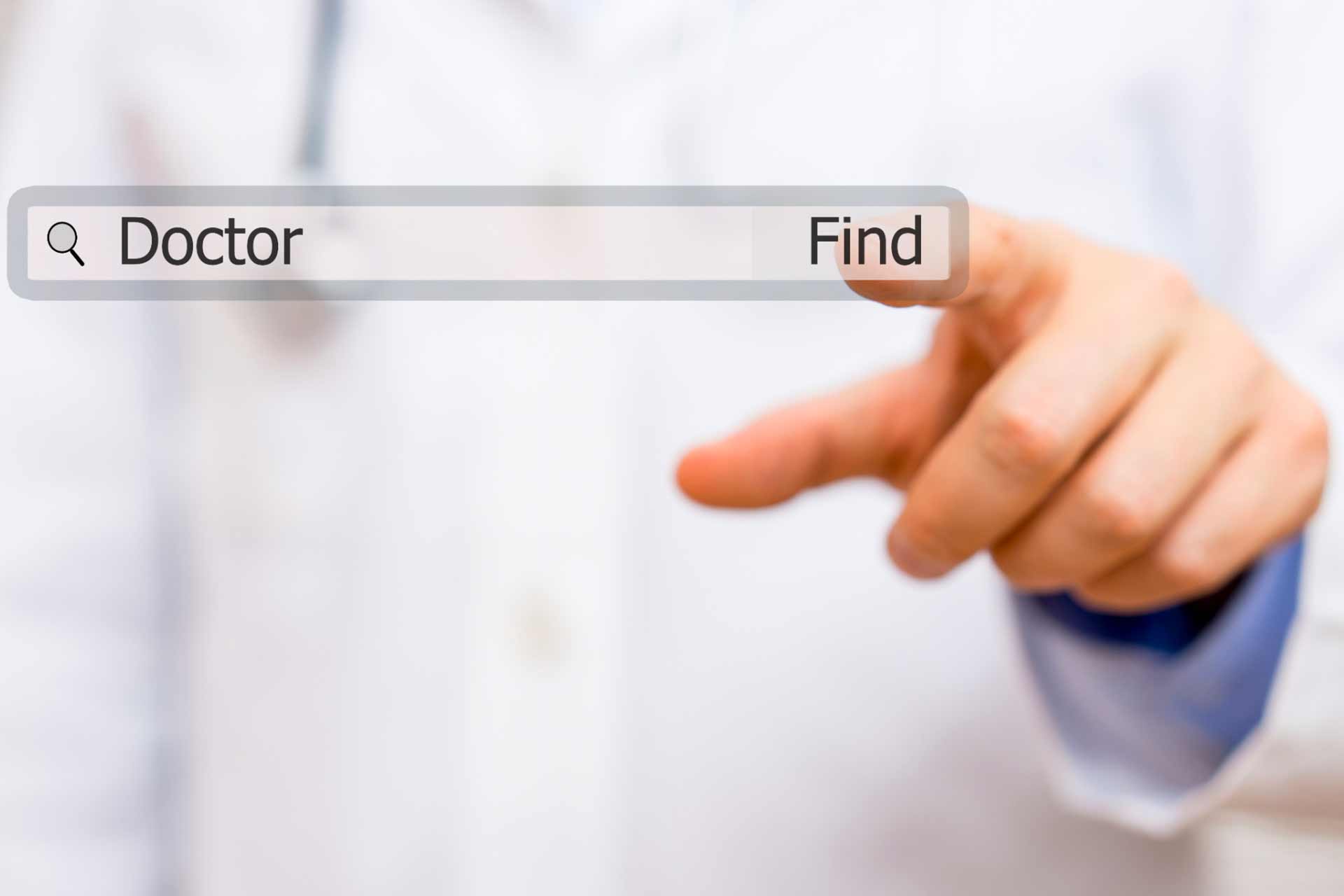

Preparing for the Medical Marijuana Evaluation Process
Adult medical marijuana evaluations can be very quick and casual, depending on where you go and what level of visit you select. Children’s evaluations, however, tend to be more detailed due to state medical marijuana requirements for this age group.
Plan to bring the same documents that you provide to the state documenting identity and Colorado residency, as well as your child’s medical records and any notes on other treatments or therapies you’ve tried for the child’s condition and the benefits/downsides to those treatments.
This information helps the physician determine your child’s eligibility for a medical marijuana card. Remember that the physician is bound by law, and can only recommend a med card if your child suffers from one of the state-designated conditions.
Beyond the paperwork, Dr. Dave says it’s important to make sure ahead of time that you’re clear on your specific goals for plant-based therapy as well as any other approaches the physician might suggest.
Be prepared for the physician to suggest other behavioral or nutritional tools that can complement cannabis medicine.
Dr. Dave says, “Cannabis is not a one-size-fits-all treatment like most other medications. It can take up to six months to dial in an optimal regimen. It’s also important for people to know that neither cannabis nor any other medication is ever going to be a magic bullet. To achieve great outcomes, cannabis has to be just one part of a comprehensive treatment plan that typically involves a variety of lifestyle measures.”
At the end of the visit, the physician submits their certification online to the state’s medical marijuana registry. That certification includes your child’s name and identifying information, making it easy for you to link to when you finish setting up your child’s online account with the state.

Considerations Before Applying for a Medical Cannabis Card for Your Child
Many parents come to cannabis after exhausting conventional options for managing their child’s seizures, chronic pain or cancer treatment side effects. That was our board member Amy Dawn Bourlon-Hilterbran’s experience, ultimately leading her to form the American Medical Refugees group for other parents in similar situations.
At Leaf411, we’re committed to providing straightforward, balanced information. While we believe in cannabis’s therapeutic potential, we also know that in the current environment, cannabis still suffers from stigma and misunderstandings that could create challenges as you pursue a medical card for your child.
We don’t mean to discourage you here, but simply prepare you for any potential roadblocks or unanticipated consequences before they arise. These barriers can be very frustrating when all you’re trying to do is find a safe alternative for your child’s health condition:
- When considering a med card for your child, make sure that you and your parenting partner(s) are on the same page about the plan and your goals for your child’s health. This is especially critical when parents are separated, since even a parent’s legal cannabis use may factor into court decisions around custody.
- Also, school district policies are evolving in Colorado and other states with legal medical marijuana. Depending on where you live, you’ll likely need to review the laws and provide education to your childcare providers or district personnel who are concerned about liability or loss of federal funding.
- In higher education, many universities including the University of Colorado and Colorado State University prohibit cannabis possession on campus, with both universities stating that “possession of a Medical Marijuana Registry identification card does not authorize a student to possess, use, or distribute marijuana on campus. This includes university residence halls, dining facilities and public areas.” Students with a documented medical need for cannabis may petition to be released from on-campus housing requirements, though.
- As long as cannabis remains illegal at the federal level, regular cannabis use will be a likely disqualifier for enlisting in the military, even if the person holds a med card. However, it’s very likely the health condition your child suffers from would be disqualifying in and of itself, so this may not be a concern.
- If your child is employed or participates in extracurricular activities, they may also be subject to random drug testing—and simply living in a legal state and holding a valid med card isn’t protection against disciplinary action.
So that’s the bad news–for now. Support for full legalization of cannabis is widespread and growing, as the public and medical professionals learn more about the benefits of the plant. As a parent seeking cannabis medicine for your child’s serious health condition, you’ll be one of the pioneers. Other parents have walked the path before, and are willing to share their support via organizations like American Medical Refugees.

A Final Word of Encouragement
When we asked Dr. Dave what he’d say to patients who are contemplating cannabis as an alternative for themselves or their children, he said this:
“No one needs to be scared of cannabis treatments. When used appropriately, cannabis therapeutics are extremely safe among all age demographics. Most of the fear-mongering is from people who know very little about the plant and its compounds. Many patients who are looking to cannabis have been struggling with issues for years or decades and haven’t been given treatment options beyond pharmaceuticals and surgeries. These patients often have little hope for success. Cannabis can be a powerful medicine but also a gateway into the greater world of integrative health which provides an abundance of options to help these patients achieve success.” –Dr. Dave Gordon
Leaf411 Provides Balanced Cannabis Guidance without Judgment
Remember that we’re happy to help answer your questions on our free anonymous hotline at 844-LEAF411 (844-532-3411). Our Leaf nurses talk to many parents and guardians who are at all stages of their journey helping their children–from those just beginning to seek out alternatives to parents who are seeking guidance on the best CBD: THC ratio for a particular health concern.
Sign up for our newsletter below to be the first to learn about upcoming Leaf Learning: Get the 411 Series events and other news about what we and our Leaf411 supporting members are up to!
Introducing Amy Dawn Bourlon-Hilterbran, Leaf411's Affordability Program Chair

Medically reviewed by Katherine Golden, RN
Written by Denise Rustning
If you’ve taken a look at Leaf411’s About Us page recently, you’ve likely noticed several new faces. Today we’re introducing Amy Dawn Bourlon-Hilterbran who joined the Leaf411 Board of Directors as our new Affordability Program Chair.
Bourlon-Hilterbran is a tireless advocate for cannabis patients, including veterans and families with children whose lives have been transformed through plant-based medicine. The Green Market Report lists Bourlon-Hilterbran as one of the Most Important Women in Weed in 2020, and many publications including GRAM, Westword, and Weedmaps have profiled her work.
A Passionate Advocate for Patients' Access to Cannabis
“Our son had been on varying, numerous pharmaceutical pills and combinations to combat his daily seizures, but none of them stopped them, and all had side effects. Some side effects were hideous, some sent him into anaphylactic shock, some started shutting down his organs. The doctors told us to take our son home, that there was nothing more they could do,” Bourlon-Hilterbran said.
“Because I was left with no other choice, I chose to try cannabis for our son. It saved his life. Cannabis stopped his seizures when no pharmaceuticals did. I am ashamed to say it took those extremes (before trying cannabis as an alternative), but I want other families to learn from my mistakes. Cannabis should be a legal option and not the last illegal resort.”
At the time, AMR and Leaf411 didn’t exist, so Bourlon-Hilterbran had to spend hours researching and talking to other families she tracked down who had similar experiences.
“It was heartbreaking and extremely overwhelming at times, trying to gather information, talk to other parents, find the missing answers. I vowed I would do whatever it took to make the process easier for other families who had to relocate from another state or country to legally access cannabis as a medicine,” she said.
Every day, Bourlon-Hilterbran hears from parents who are navigating similar situations that she faced, who are either confused or conflicted about how to best help their children. She advises:
“Never forget that you are the lead on your child’s medical team. No one cares more for your child or knows your child better than you. Be respectful, be educated on your child and their condition, but make sure your doctors and family know that you will be an active member of the conversation when it comes to the health of your child. Never. Give. Up.”
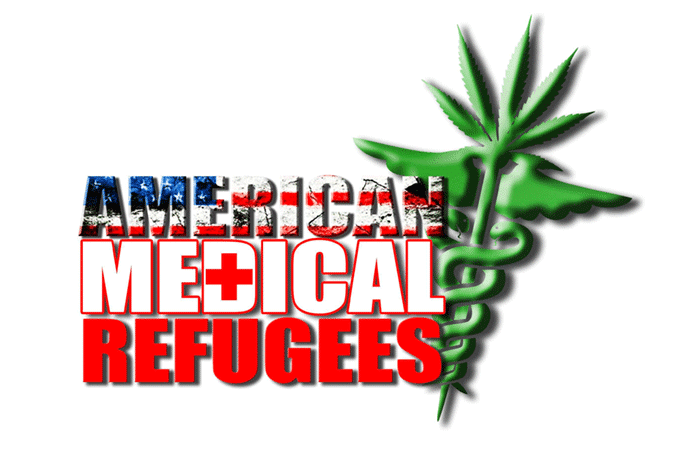
American Medical Refugees: Serving as a Resource for Patients and Their Families
Bourlon-Hilterbran’s experience led her and her husband to launch American Medical Refugees. AMR has directly helped thousands of patients through in-person events, information sharing and online community-building, all incredibly valuable skills that Bourlon-Hilterbran will bring to her role at Leaf411 as well.
Bourlon-Hilterbran also shares her experience with other AMR families so they can advocate for legislative changes to improve access to safe, legal cannabis in their home states.
“We’re all in this together, and we need to stand united. Political party affiliation doesn’t matter when someone is chronically or terminally ill. We see Republicans and Democrats fighting side by side to legalize cannabis, even in my own family,” she said.
Although Bourlon-Hilterbran and her family now make Colorado home, their Oklahoma roots run deep. In 2018, Oklahoma voters approved medical marijuana, creating a new option for thousands of patients who could not afford to move out of the state to access legal cannabis. Bourlon-Hilterbran played an active role in that legislative process, working with Oklahoma Senator Connie Johnson and other critical entities to ensure the newly enacted laws put patients first.
While a lot of progress has occurred, stigma, stereotypes and barriers still exist. This came to light in 2019 when CBS rejected a medical cannabis ad created by Acreage Holdings for the Super Bowl. Bourlon-Hilterbran’s son was one of the patients featured in the ad.
For Bourlon-Hilterbran, the need to address stigma and stereotypes while also providing education was a major impetus for her planned launch of the Oklahoma Cannabis Expo in March 2020. Unfortunately, the emerging COVID-19 pandemic put a stop to all large public events, including the expo. Bourlon-Hiterbran is working closely with city and state officials to find a new date for the Oklahoma Cannabis Expo in Fall 2021.
Forging a New Role at Leaf411 as the Affordability Program Chair
When it comes to her role on the Leaf411 Board of Directors, Bourlon-Hilterbran is laser-focused. “My goal is to bring my educational and medical experience, along with my patient and industry networks together to offer patients support, information and access. Joining this team is a highlight of my life. The potential to directly impact more patients via free medicine and medical appointments makes me incredibly happy and proud,” Bourlon-Hilterbran said.
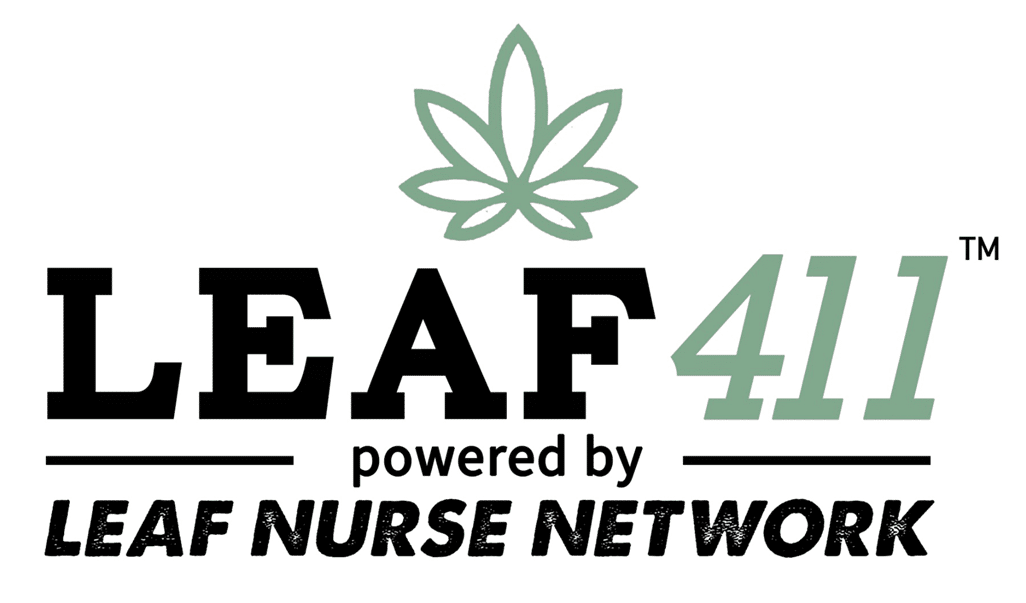
Leaf411's Commitment to You as We Grow
As Leaf411 continues to grow and innovate new programs, our core mission remains focused on the public, providing free, clinically-sound education and directional support about the safe use of legal cannabis (both CBD hemp and marijuana sold legally in dispensaries). We’re also committed to working with stakeholders to address outdated stereotypes and stigma, while also improving the public perception of the cannabis industry.
Our newest additions to both our Advisory Board and Board of Directors, including Bourlon-Hilterbran, will help ensure that our education and services that are fully compliant and transparent as we grow, and that we remain true to our mission to you—the public.
Stay up-to-date with our latest events, programs and initiatives by signing up for the Leaf411 newsletter below!
The Leaf411 cannabis nurse hotline provides free, anonymous education and directional support to the general public about the safe use of legal cannabis. We partner with select business members who meet our rigorous standards to extend our education and outreach efforts.
